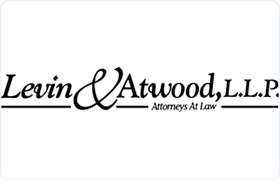 Brookshire Child Support Lawyers, Texas
Brookshire Child Support Lawyers, Texas
Sponsored Law Firm
-
 x
x

Click For More Info:
-
Levin & Atwood, LLP
20501 Katy Fwy Ste 217 Katy, TX 77450» view mapDivorce and Family Law Knowledge And Experience You Can Trust
Levin & Atwood provides the full spectrum of legal counsel to family owned and other private companies.
281-579-6044
Sponsored Lawyers
1-10 of 27 matches
Estate Planning, Adoption, Welfare, Property & Casualty, Child Support
Divorce is a difficult, stressful, and life-changing experience. You need a legal team that can help you wade through the complexities of resolving your family law case. The attorneys at the Fagan Law Firm can help you reach agreements with your spouse, obtain orders from the court for division of your community property, confirm and safeguard your separate property, arrange custody and visitation schedules, help determine the amount of child or spousal support, obtain protective orders or injunctive relief if necessary. Call us today for a consultation to begin process of this complex life transition. Our attorneys are experienced in representing high income and net worth individuals as well as small business owners going through divorce. Family law issues relating to jobs, salary, and career play a significant role in divorce court. The most significant issues in divorce cases involve the dibision of property and issues related to child support and coustody. We assist our clients with resolving these issues fairly and efficiently. We guide our clients through a process where we help identify areas of agreement and then advance to negotiate matters in dispute.
(more)Divorce & Family Law, Child Custody, Child Support, Prenuptial Agreements, Paternity
Going through a divorce or family law matter can be an emotional time. You may feel betrayed, lost, or overwhelmed. Having an attorney that can relate to you, and who focuses on divorce and family law, can make the process easier. Since our founding in 2007, we have dedicated our firm to the practice of divorce and family law because of the tremendous need for lawyers who focus on this area. We have since continued to grow and have over 25 offices throughout the United States. If you need help with a family law or divorce-related matter, our legal team can help guide you through the process. We have many offices in many local jurisdictions, which puts our firm close to you and your family. We have been ranked as one of the fastest-growing law firms in the United States by Law Firm 500. To schedule a consultation, you can contact us online today.
(more)Divorce & Family Law, Child Custody, Child Support, Custody & Visitation, Paternity
With over 27 years of expertise in family law and a Board Certification under her belt, Dessiray is equipped to assist men, women, grandparents and other individuals with their individual family legal matters. As an avid learner in the field of family law, Dessiray remains up-to-date by consistently attending seminars and conferences for relevant information that she can use to provide the most effective assistance possible. Her areas of practice include divorces, child custody disputes, enforcements as well as adoptions - all within the scope of family law. Not only does Dessiray represent children in court cases as an amicus attorney, but she also genuinely loves interacting with her clients and provides them with her personal cell phone number to ensure that they can always connect with her when needed. Though there's no way to guarantee a particular outcome for any case, at the very least you can be certain that each issue taken on by Dessiray and her firm will receive 100% of their effort and dedication. To schedule your free consultation with the Houston Family Law Attorney, visit online or call 713-650-1866.
(more)Divorce & Family Law, Child Custody, Child Support, Paternity, Domestic Violence & Neglect
Kate Bihm is a well-versed family law and divorce attorney who brought her name to the public eye in Montgomery County during her campaign for the 9th District Court in 2016. In her time since starting her solo practice in Conroe, Kate has worked in both divorce and family law matters, including child support, child custody, and more. When you hire Kate, you will be getting knowledge and experience that you can trust. To schedule your free consultation with a skilled Conroe Divorce Attorney, visit Kate online or call 936-788-6100.
(more)


 Karen Taylor Katy, TX
Karen Taylor Katy, TX AboutLevin & Atwood, LLP
AboutLevin & Atwood, LLP Practice AreasExpertise
Practice AreasExpertise




